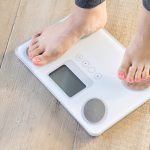How Exercise Can Boost Both Heart Health and Emotional Well-Being
Update: 2025-10-01
Description
If you’ve been diagnosed with high blood pressure, you’ve likely been told to make a few lifestyle changes—cutting back on salt, managing stress, and getting more physical activity. Of those, building a regular exercise habit can be one of the most challenging, especially if you're just starting out. Health experts recommend beginning slowly. According to WebMD, starting with just 10 to 15 minutes of movement per day is a great first step. Then, every 2 to 4 weeks, add another 5 minutes. Over time, these small changes can build into a solid routine—and maybe even have you training for a triathlon someday. Exercise also plays a big role in emotional health. If you tend to eat when you’re stressed, anxious, or sad, you’re not alone. But regularly turning to food for comfort can have long-term health consequences. Nutrition experts at the Cleveland Clinic suggest healthier coping strategies such as talking to a friend, practicing deep breathing, seeking therapy, or getting some physical activity. The benefits of exercise go far beyond mood and motivation. Regular workouts can help regulate blood pressure, lower triglycerides, and raise levels of HDL—the "good" cholesterol—making it a powerful tool for both your heart and your mind.
Comments
In Channel
























